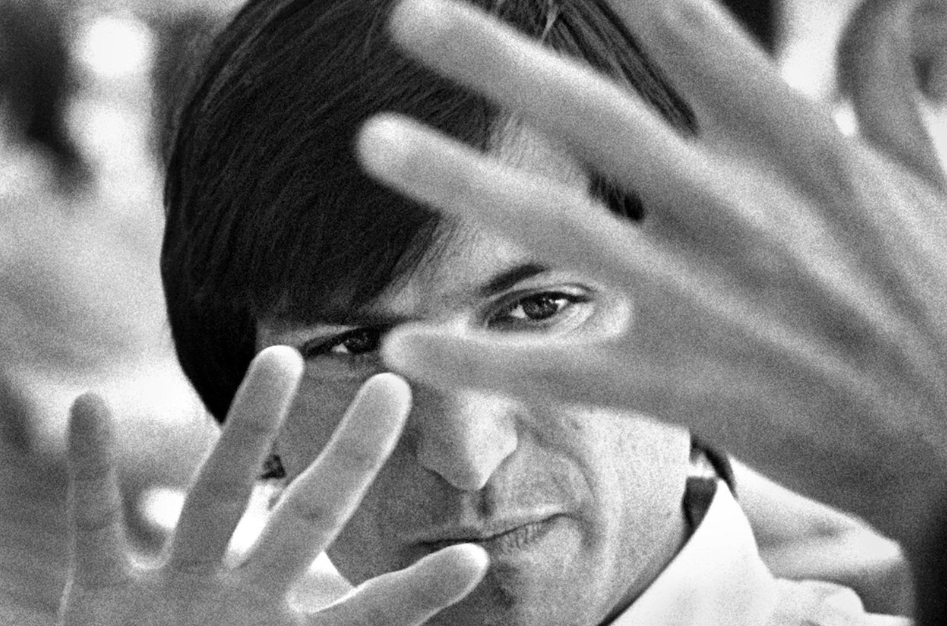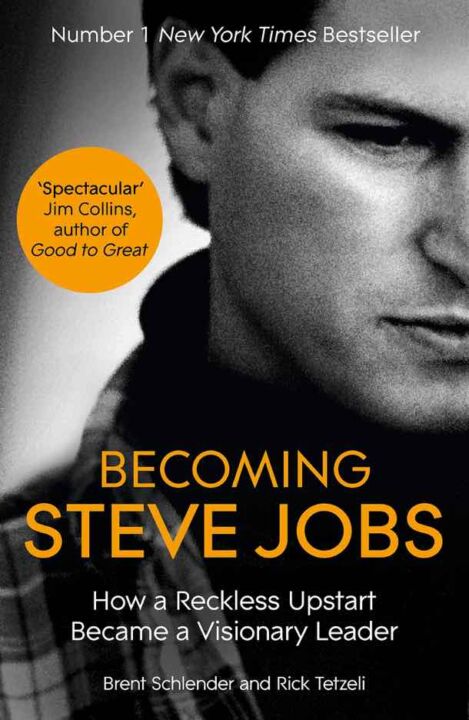Title: Becoming Steve Jobs
Author: Brent Schlender, Rick Tetzeli
Publisher: Sceptre
Genre: Biography, Business
First Publication: 2015
Language: English
Book Summary: Becoming Steve Jobs
We all think we know who Steve Jobs was, what made him tick, and what made him succeed.
Yet the single most important question about him has never been answered.
The young, impulsive, egotistical genius was ousted in the mid-80s from the company he founded, exiled from his own kingdom and cast into the wilderness. Yet he returned a decade later to transform the ailing Apple into the most successful company the world had ever seen.
How did this reckless upstart transform himself into a visionary business leader?
The first comprehensive study of Jobs’ career following his dismissal from Apple, written with unparalleled access and insight, BECOMING STEVE JOBS offers a startling new portrait of the most important business figure in modern history. The most intimate biography yet of Jobs, written by the journalist who knew him better than any other, BECOMING STEVE JOBS draws on recently discovered interviews that have never before seen the light of day, and answers for the first time the most pressing questions about what made this legendary business leader such a success.
“Your time is limited, so don’t waste it living someone else’s life.”
‘Brent Schlender and Rick Tetzeli render a spectacular service with this book, giving fresh perspective onSteve Jobs’ journey from inspiring but immature entrepreneur into an inspired and mature company-builder. Most important, they capture Jobs’ resilience, his refusal to capitulate, his restless drive to stay in the game, his voracious appetite to learn-this, far more than genius, is what made him great.Becoming Steve Jobs gets the focus precisely right: not as a success story, but as a growth story. Riveting, insightful, uplifting-read it and learn!’ Jim Collins, author of Good to Great

Book Review: Becoming Steve Jobs
This book follows by four years Walter Isaacson’s authorized, best-selling biography, Steve Jobs, which was released just months after Jobs’ death in 2011. Three principal facts highlight the differences between the two books:
First, the authors of Becoming Steve Jobs are journalists who covered the Apple co-founder from 1986 through his death in 2011, while Isaacson, though unquestionably a masterful biographer, was named as authorized biographer only in 2009.
Second, though I have no way of knowing for sure, I believe that Becoming Steve Jobs was written in reaction to Isaacson’s bestselling book. As the principal author, Brent Schlender, a reporter and editor for Fortune, asserts in the Source Notes following the text, “we are trying to achieve with this book . . . a deeper understanding of Steve Jobs’ ever-evolving arsenal of entrepreneurial skills and capabilities, and the deepening of his almost messianic drive to have an impact on his world.”
“Simplicity is the ultimate sophistication.”
 Third, in a way the most attention-getting, Becoming Steve Jobs has been enthusiastically received by the people who knew him best: those he worked with at Apple and Pixar, and his peers in Silicon Valley. By contrast, the reception in the Valley for Isaacson’s book was mixed at best, despite the rave reviews it received in all the right places. I loved it, too.
Third, in a way the most attention-getting, Becoming Steve Jobs has been enthusiastically received by the people who knew him best: those he worked with at Apple and Pixar, and his peers in Silicon Valley. By contrast, the reception in the Valley for Isaacson’s book was mixed at best, despite the rave reviews it received in all the right places. I loved it, too.
Schlender and Rick Tetzeli, his co-author, elaborate on the reality that helps explain all three factors. During the nine years he ran Apple before his ouster in 1985, “at his childish worst Steve Jobs was really nothing more than a spoiled brat.” Later, however, as they write, “While away from Apple [from 1985 to 1997], Steve Jobs had started to learn how to make the most of his strengths, and how to temper somewhat his perilous weaknesses. This reality runs counter to the common myths about Steve. In the popular imagination, he is a tyrant savant with a golden touch for picking products and equally a stubborn with no friends, no patience, and no morals; he lived and died as he was born — half genius and half a**hole.” If that had been the full picture, they insist, Jobs could never have “pulled off one of the greatest business comebacks ever.”
“One of the things I’ve always felt is that if you’re going to be creative, it’s like jumping up in the air; you want to make damn sure the ground is going to be there when you get back.” – Steve Jobs
Schlender and Tetzeli emphasize the role of other remarkable individuals in the education of Steve Jobs. First was Regis McKenna, the legendary marketing guru of Silicon Valley, who led the effort to develop the Apple brand. For a time, John Sculley played that role — a short time. Then came the pair of geniuses Jobs saved from oblivion when he bought George Lucas’ animation unit and created Pixar: the brilliant animator and storyteller, John Lasseter, and the company’s outstanding manager, Ed Catmull. No doubt he also learned a lot from his archrival, Bill Gates. (At least, he learned how not to design products.)
Among his co-workers, though, his deepest and most productive relationship was with the English designer, Jony Ive, who ran Apple’s design shop in close collaboration with Jobs during his second stint at the company. Obviously, however, his wife, Laurene Powell Jobs, must deserve a lot of the credit for rounding off his sharp edges.
“You have to trust that the dots will somehow connect in your future.”
For anyone capable of empathy and with experience running a business, how Steve Jobs turned around Apple has to seem shocking. The company was on the verge of bankruptcy in the late 1990s, victim to the bad judgment of a series of incompetent CEOs and a passive board. Shortly after reassuming the top role at the company, Jobs went so far as to bulldoze “tens of thousands of unsold Macs into a landfill in early 1998.” He ruthlessly slashed a product line of dozens down to a “quadrant” of just four products. And he cut tens of thousands of jobs. From either a humane or an environmental perspective, these changes were hardly admirable. But they did the trick. By the middle of the decade of the 2000s, Apple was back again, beginning its short journey to become the world’s most valuable business.
Becoming Steve Jobs is based not only on a quarter-century of reporting on the company but on interviews with huge numbers of the people who knew the man. It’s not only a biography but a wonderful business book. It’s a monumental achievement.





